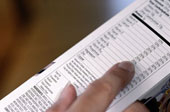
I am extremely passionate to only cook with all-natural ingredients, but sometimes the labels can be downright confusing of exactly what you’re buying, or what all-natural means, or organic, low-fat, etc. Too many labels and not enough clarification.
Once you break it down, it actually makes a lot of sense…for the “all-natural” side at least. All-natural is really just that…all natural. Totally natural ingredients, with no chemical enhancements, and that the very minimum–not created in a laboratory. In my opinion, the two biggest offenses of the chemically-created food world are: hydrogenated oils (aka trans fats) and corn syrup. In both cases, something was carried into a lab thatbegan as all-natural, but then had loads of chemical enhancements to make it shelf-stable and, frankly, a huge money-maker (for the corporations, that is).
Hydrogenated oils (aka trans fats) are oils (natural) that are taken and have been injected with hydrogen, causing them [the oils] to remain solid at room-temperature. Really, the thought of a scientist wearing a white lab coat, hovering a needle full of hydrogen over my pure, lovely olive oil scares me! Then, packaging it in the form of shortening and selling it as a “healthy alternative” to butter. I don’t want to eat anything that was altered with hydrogen just so it could stay in a “solid state”…when you get beyond that, no wonder it clogs your arteries! After all, it’s chemically-enhanced to remain solid, so your body has to fight the extra chemicals, plus do it’s normal job of digesting the food and removing the nutrients.
Let’s talk about bread…have you ever made a lovely loaf of homemade bread, only to have it mold three days later. Umm, if you have, you’re a better person that I. :D I tend to eat the entire loaf on the first day it’s made. Mmmmm. Bread. Anyway, bread molds because that is the natural cycle of life…and flour and yeast. Store-bought bread which has nearly 25 ingredients (homemade bread has four: flour, salt, water & yeast), all to make it last longer on the shelf (and uh, last longer in your body, as well…). To me, it’s a good sign that bread gets moldy after a few days, it means it’s REAL.
I’m going to avoid the generalization of organic, because that is really a new can of worms, but I will touch on a few points. For instance, I’ve actually seen one or two organic items that have shortening and corn syrup, though truthfully, that is rare. Still, yikes. However, there are several organic items I buy religiously, because these particular products have all-natural sugar, where as their “regular’ counterparts contain corn syrup as the counterpart. A few examples include yogurt and ketchup.
In the end, we all make choices (and sacrifices) for what we find important to our families. In the end, I can only strongly, strongly suggest that you really take the time to read the labels. Don’t buy things just because that’s what your mom bought, and all you’ve ever known. Take it upon yourself to educate yourself and ask yourself if you consider what buy real food, or if it’s just an artificial substitute for nutrition. And frankly, if the package touts it’s nutritional-enhancements, I’d wonder what it’s trying to conceal. Read the labels of ingredients, please (click here).
——————
EDIT TO ADD:
I think I’ve mentioned before that my Dad is a scientist, and what I consider a rather smart one at that. I know that it is from him that I get my discerning intrigue of all the whys of the Universe and especially with food. He has spent the greater part of his life working with food and helping improve the quality of food world-wide, even to the point of working side-by-side with farmers to help improve crops. After he read my post, he made the fascinating comment: “There are some additives that if they are genetically engineered into rice can basically stop blindness in children in the developing world.” Dad helps to keep me grounded and remind me of how much good in the world has been done by so much food research, as well—and I attribute a great deal to him, honestly. Thanks, Daddy.